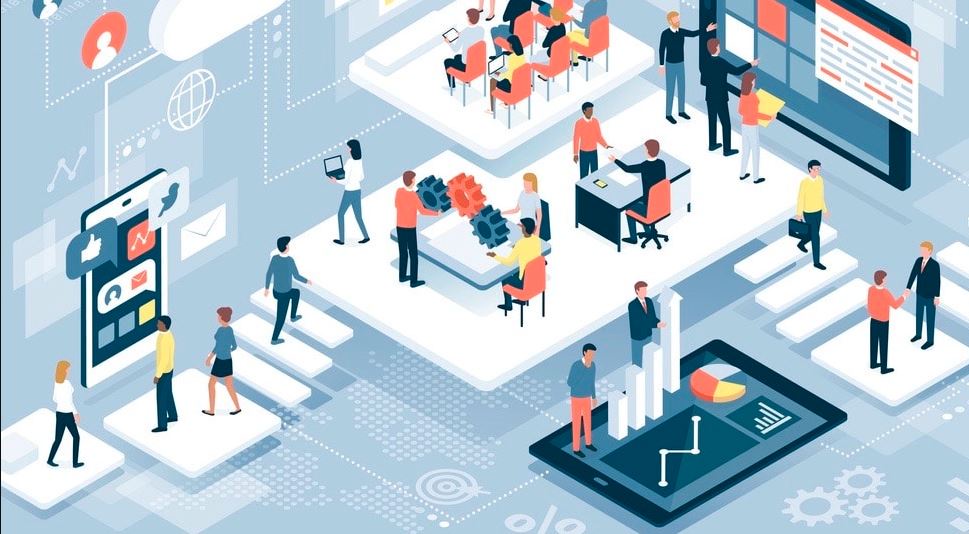The technology behind event management is a tool that all organizations can utilize to arrange successful events. Project management is utilized in event management to ensure the success of each event. Here's how it's done:
Large events may be difficult to plan. It takes an event manager to ensure that every aspect of the event is appropriately handled so that everything runs smoothly. Also, an event organizer has to organize the best-on-ground event management It entails:
- Organizing the Event
- Budgeting
- Choosing a Location
- Obtaining Permits
- Transportation
- Entertainment
- Catering
- Security
Various technologies help event planners arrange amazing conferences and events. Event planners have been employing technology to some degree for some time; nevertheless, the usage of event management technology is expanding as more applications become available.
In this blog, we are going to discuss the technologies of event management. So without further ado, let’s start:
The Impact of Technology on Event Management
The development of event management software has made event organizers' jobs simpler. There are several event management applications available to help you arrange any sort of event. These tools might assist you in better planning events so that everything runs smoothly. Here are some examples of how technology may improve event planning efficiency:
1. Conserve Time
Event management software can assist you in concentrating on the most critical areas of event preparation. The technologies for event management organize data for you so that you can utilize it easily. You will not waste time planning anything this way. You may instantly begin working on the event's essential components.
2. Budget-Friendly
You can keep track of how much you spend on each event you arrange by using event planning software. You can also compare the amount spent on one event to the amount spent on previous comparable events. You will be able to assess the areas where you may lower the costs. So that you can spend less money on similar events in the future.
3. Improved Communication
Because everyone works on the same platform, it is easy for all parties involved in event preparation to collaborate with one another. Proper communication is a critical aspect in determining whether or not an event will be a success.
4. Improved Networking
Social media may be applied in a variety of sectors. When it comes to event management, social media makes it simpler for consumers to share their experiences and for event planners to collect feedback from attendees. This is an excellent approach to making adjustments for future events.
5. Better Structure
You may collect data about attendance using crowd shaping to optimize the event. This information is gathered through social media networks or event management software. Also, you can use a mobile event app or event microsite to gather such data. Technology for event management also allows you to employ attendee-self-service systems, which allows you to spend less money on events.
The following technologies are transforming the event planning industry:
- Mobile Event App for Management
- Social networking sites
- Microsite for event management
- Marketing Automation
- Email Marketing
- Live Streaming
Email marketing is an excellent technique for advertising any event. When integrated with marketing automation, it may assist an event planner in sending more tailored emails about an event. As the use of virtual reality grows, it will become an important tool in event management.
6. Improved Audience Engagement
One of the most difficult problems for event planners is effectively engaging their audience. While technology is frequently viewed as an adversary to real engagement. When implemented correctly, it may have a great influence on interactivity and engagement throughout the delegate trip. For instance, event technologies such as live streaming systems allow audience members to pose questions (while remaining anonymous) to hosts or panellists via an app or social media. Event MB discovered an 80-90% increase in repeat attendance at events where sessions use live response tools.
7. Making an impression
Technology is often used to increase the "wow factor." Using technology such as lighting, sound, virtual experiences, etc., you can leave a lasting impression on your delegates. There is the option of incorporating an effective VR / AR experience or grabbing delegates' attention with clever projection mapping. However, it is often the simplest approaches that have the greatest impact, such as using lighting and sound to set the overall atmosphere and rhythm of an event, showcase a particular product, or even add drama to the venue.
Conclusion
By the end of this article, we have discussed the world of event management and the technologies behind it. Event technology is much more than a temporary trend, and it will undoubtedly play an increasingly important part in the future of events. This is why it is critical for event planners to grasp the vast range of alternatives available or to collaborate with firms that provide this information. I hope you learned something from this blog. Thank you for reading.!


No comments yet